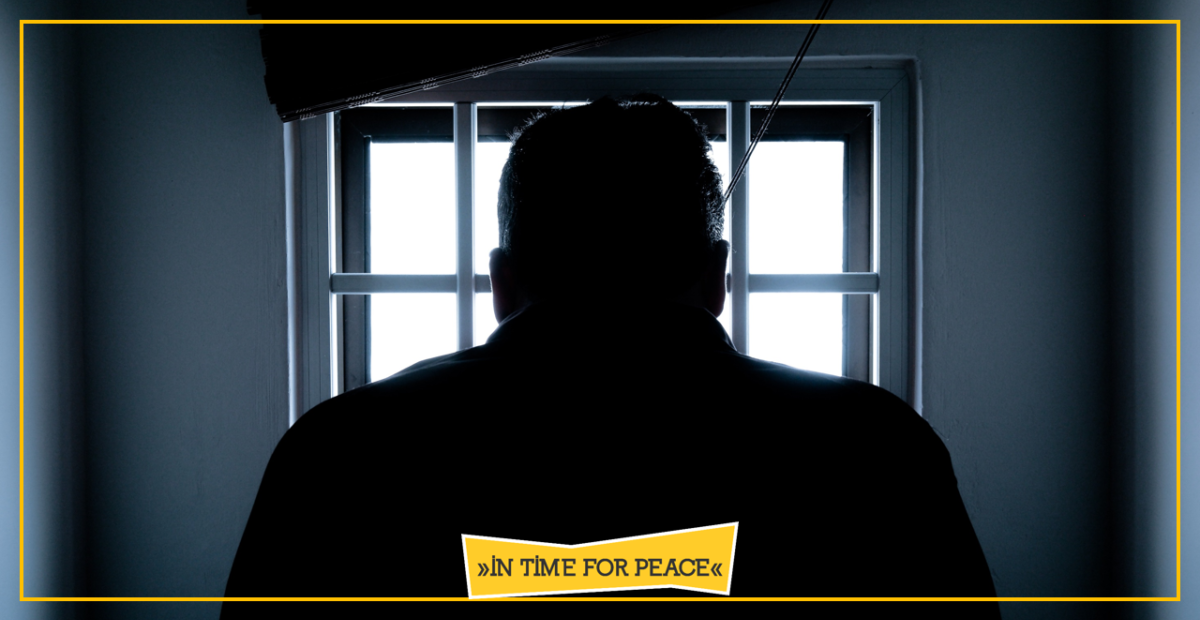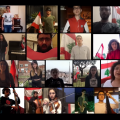
Watch
Justice and human rights

By Antonio Amato
Italian penitentiary expert Antonio Amato sent us this letter. Working in Social Services at Bologna Probation Office, Dr Amato has, for the past twenty years, specialized in community service penalties as an alternative to jail sentences. He retired just a few weeks ago. At first glance, his letter may read like a condemnation of the Italian prison system. However, there is much more to it than this. He argues for an awakening to acknowledge an open wound in our society. He extends a request to young people, but ideally to all, to develop the sensitivity to take on board this tragic situation which touches so many throughout the world. This too can be #Intimeforpeace.
My name is Antonio Amato (…), I would like to try to tell you something about the issue of justice and human rights, drawing on my professional experience of over 40 years’ service.
A premise
Socrates defined justice as “a thing more precious than gold” but also the most elusive of ideals. Whereas Gustavo Zagrebelsky[1] called it an “obscure word”. But, he continued, given that all the big questions about life are expressed with words which are anything but clear and unambiguous, we can only limit ourselves to brief considerations and small thoughts …
The implementation of sentencing in Italy
We cannot talk about the implementation of sentencing and imprisonment (in Italy) without referring to Article 27 of the Italian Constitution, which declares that “punishment cannot consist in any treatment contrary to a sense of humanity and must tend towards re-education”. The re-educational purpose of punishment must be adequately reflected in all legislation. But how many and who are the people detained in Italy’s 189 prisons? And how does the Italian penitentiary system, already condemned by the European Court of Human Rights for its inhuman and degrading treatment of prisoners (in overcrowding apart from anything else), match up to the intention and aim of sentencing and punishment as presented in the Constitution? Is it capable of delivering on human rights such as maintaining relationships with the outside world, the right to work, to good health, to instruction, to the sphere of religion, to political rights?
People in prison
The vast majority of those convicted by courts in Italy, as in other countries particularly the United States, come from an experience of some form of fragility or special needs: drug dependency, psychiatric illness, immigration, people with modest financial, social and cultural resources, with barriers to employment, or with problems in affectivity and relationships. Only a small percentage of prisoners have actually made a conscious choice of a criminal lifestyle, those who belong to the world of “organized crime”.
When they arrive in our offices at the end of their sentence or transferred as part of an alternative measure to imprisonment, these people present with difficulties in autonomy, self-determination, communication and relating to others, at different levels. They demonstrate a very low tolerance threshold when faced with the frustrations of life, which makes it extremely difficult for them to handle normal activities like working, mixing with other people or even holding a simple conversation.
But what is prison? Many observers define it as a massive poverty trap, a social drainpipe. Prison in fact throws doubt on how society deals with its social problems: lock up the guilty and forget about them. But for how long? And to what personal and structural cost?
The Italian Constitution, as we have read, states that punishment must tend towards the social re-integration of the person. But for half our prisoners, there is no scope for social re-integration. No scope because they are people without a financial code, without residency, without work, so they have no access to alternative measures to incarceration, nor can they be reintegrated into society on their release. It is a model that generates frustration in those who experience it and also in those whose job it is to apply it.
Someone highup in the administration of our penitentiary system has declared that prison is forcing us to face a serious issue in our society: the growth of inequalities. The overcrowding of our prisons is the sign that society is choosing prison as the answer to the problems of social inequality. Whereas these problems should actually be addressed by the redistribution of resources and the generation of social equity. Instead of dealing with the problem, we are brushing it aside into the penal system. Infact, wherever there is a reduction in social spending, there is always an increase in medical and penal spending. Our problems, therefore, become medicalized or criminalized.
Conclusions
We live in troubled and troublesome times, governed by emotional extremism. If we want to find a turning point, we should not aim at achieving the utopia of absolute justice. In these times we are living in, we should settle for the rejection of radical injustice. This would already be a great result.
When offenders are convicted, they incur the duty to pay their debt to society. I do not think that prison is the most efficient way of paying this debt. 70% of prisoners go on to re-offend on their release. The daily cost of imprisonment is high, from €130 to €140 a day for each detainee. I agree with the liberal economists who claimed, “Too much detention destroys detention”.
Prison is not a simple shield against criminality. It’s a double-edged sword.
I’m convinced that by speaking to you, especially young people, about these issues – by pointing out the fact that reality is complex and does not permit a simple clear division between good and bad, that there’s a fine line between legality and illegality – all this can contribute to build up your awareness, enrich your feelings and experience. All this will be useful for how you live with others, and will help you face life when it presents itself in its darkest and most obscure aspect.
We can approach wrong-doing in order to understand and learn, while maintaining appropriate distance using good judgement, which means knowing how to accept that there are people and stories which are dark and oppressive but which can also teach us something.
I’d like to conclude this brief reflection with the words of the poet Aimé Cesarie : “And above all, body of mine, and you too my soul, take care not to cross your arms in the sterile gesture of a spectator, because life is not a show, because an ocean of pain is not an interlude, because a human being who cries and screams is not a dancing bear”.
Bologna, 26 April 2020
Antonio Amato
[1] Gustavo Zagrebelsky (San Germano Ghisone, Torino,1943) is a legal theorist, former president of the Italian Constitutional Court.





